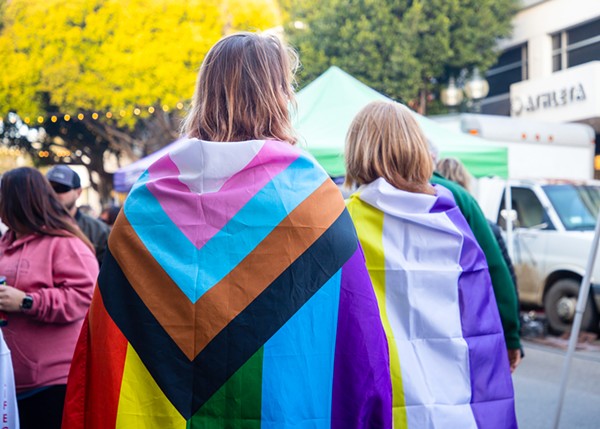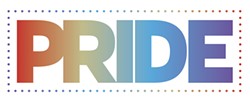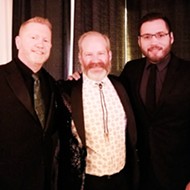For some transgender people, the pandemic created unexpected safe places to find their truest selves
By Malea Martin[{
"name": "Ad - Medium Rectangle CC01 - 300x250",
"id": "AdMediumRectangleCC01300x250",
"class": "inlineCenter",
"insertPoint": "8",
"component": "2963441",
"requiredCountToDisplay": "12"
},{
"name": "Ad - Medium Rectangle LC01 - 300x250",
"id": "AdMediumRectangleCC01300x250",
"class": "inlineCenter",
"insertPoint": "18",
"component": "2963441",
"requiredCountToDisplay": "22"
},{
"name": "Ad - Medium Rectangle LC09 - 300x250",
"id": "AdMediumRectangleLC09300x250",
"class": "inlineCenter",
"insertPoint": "28",
"component": "3252660",
"requiredCountToDisplay": "32"
}]
When Jackie Martin looks back on her childhood, she remembers feeling like something was off—like the puzzle pieces of her identity weren't quite fitting together.
"There were definitely times when I was a really little kid where I had the feelings but not the words for it," Martin said. "I was starting to piece things together, and I came to somewhat of a semi-clear realization in early senior year [of high school]."
Martin graduated high school in 2019 and headed to college. After just one semester, the pandemic hit and like many young adults, she found herself back in her childhood bedroom. That's when Martin accepted what she couldn't deny any longer: She's transgender.
Today, she is out as a trans woman—she also happens to be my younger sister and one of my best friends. She told me about how the pandemic turned her "semi-clear realization" into an unequivocal one.
"It was late March [2020] at 3 in the morning, and I went online and took an 'Am I Trans?' quiz," Martin remembered with a laugh. "I told myself, I've got to be honest in answering these. Every question I was hitting 'strongly agree'—and I started to realize, 'Oh my God, this is real.'"
Martin didn't need an online quiz to know she was trans. In a way, she had always known. But she said hearing it from a neutral voice that wasn't her own was the validation she needed to finally accept who she is.
If it weren't for the pandemic, she thinks it would have taken her a lot longer to come to that place of self-acceptance.
"Because I was just kind of in my room alone, I really had to face myself," Martin said. "I didn't have much else to do but look in my mirror, and that's when I really started feeling the dysphoria."
Dysphoria is feeling misaligned between who you are and your assigned body, Martin said. It feels like "your soul is wearing its shoes on the wrong feet, combined with the external pressures of the world seeing you fundamentally as something you're not." She described it as crushingly painful.
"It was definitely there in my earlier years, but it just exponentially ramped up during the pandemic because I was just forced to be with myself at the time when my body was starting to really change in the way I definitely did not want it to," Martin said.
Martin isn't alone in her pandemic-induced coming out: According to Jamie Woolf, chair of Tranz Central Coast, a flood of calls came into her organization after 2020.
"After about a year of the pandemic, we started getting a lot of contacts from parents saying, 'My child just came out as trans, or nonbinary, or somewhere in the gender-variant world,'" Woolf said. "It was surprising how many we got, and we had the sense that maybe it was these kids sitting home, just reading the internet without a lot else to do. They were finally having these hard discussions."
While the isolation of the pandemic was challenging for everyone, including the trans community, Woolf said it also allowed some folks to start coming out without having to think about what others might say.
"They didn't know how their friends would deal with it in school, how their parents would deal with it," Woolf said. "Finally being stuck at home where their friends aren't really seeing them, they finally start to come out. It seemed like one of the unexpected bright parts of this pandemic."
For Martin, spending time alone wasn't the only pandemic-borne change to daily life that accelerated her coming-out journey.
"In the early stages of the pandemic, I remember thinking it's great we're all wearing masks, because it made me feel like I could go out in public when my dysphoria was at its worst," Martin said. "It was a great way to feel good enough to go out in public even if I wasn't fully passing yet."
Passing means that people perceive you as the gender you identify with. For most cisgender people—those who identify with the gender they were assigned at birth—passing isn't something you think twice about. It's a given that most cisgender people pass. But for Martin and a lot of trans people, passing is monumentally affirming, a feeling of pure euphoria.
"The first time I did pass was when I was wearing a mask," Martin remembers. "I was walking into Target, and there was one of those people trying to get an amendment passed or whatever. She was like, 'Excuse me, ma'am, are you a California voter?' It was a wild feeling. My adrenaline was pumping but in a good way. For the rest of the day I was smiling."
The shift to virtual spaces also proved to be a helpful tool to bring the trans community together. Allie Rae Hampton, a community activist and facilitator for the Gala Pride and Diversity Center, started a Facebook social group for the local trans community during the pandemic. The group is private and by invitation only, making it a safe place for trans people who might not be out to their friends or family yet. Hampton started hosting weekly Zoom peer support groups.
"I learned that it was really possible for a lot more people to show up and be virtually with their peers instead of coming to an in-person event," Hampton said. "I feel like more people have found that it's safe to come out. I don't think the actual quantity of [trans] people has changed, but I do know that someone who's closeted can actually join a Zoom group and it's safe, and you don't even have to turn your video on if you don't want to."
Martin said transitioning during the pandemic wasn't always easy—social isolation and COVID-19 anxiety were hard on her just like everyone else.
"But I think it got me to realize I was trans a lot sooner than I would have otherwise," she said. "It made the early stages of transitioning easier because I didn't have to constantly deal with ridicule in the workplace, ridicule from peers, ridicule from school. Those are struggles I was able to take on a year into transitioning, and by then I was more prepared for it.
"It wasn't just all the struggles, all at once." Δ
Reach Staff Writer Malea Martin at [email protected].
Latest in News
Readers also liked…
-

Coast Unified teachers upset over new position's salary and qualifications
Oct 20, 2022 -

SLO police identify alleged driver who hit and killed couple
Dec 22, 2022 -

When the levee breaks: Oceano residents, county officials walk a tightrope of regulations to manage Arroyo Grande Creek, which some say led to the levee's failure in January
May 18, 2023













